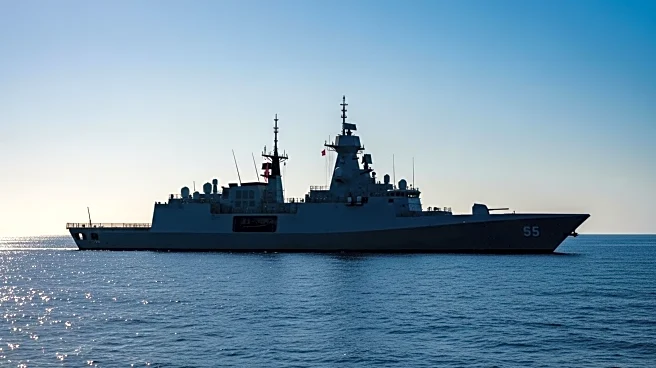What's Happening?
The Norwegian government has announced its decision to purchase a fleet of British-made frigates for its navy. Prime Minister Jonas Gahr Støre revealed that Norway plans to acquire five or six of these vessels, citing the country's most serious security situation since World War II as a driving factor. The decision to select the United Kingdom over other contenders such as the United States, Germany, and France was influenced by the close alliance and shared interests between Norway and Great Britain. The British Type 26 frigates, known for their capabilities in locating, tracking, and combating submarines, were chosen to enhance Norway's naval defense. This move comes as European nations, particularly those bordering Russia, have heightened their security measures following Russia's invasion of Ukraine in 2022.
Why It's Important?
This acquisition underscores the growing security concerns among European countries, especially those in proximity to Russia. By strengthening its naval capabilities, Norway aims to bolster its defense against potential threats in the region. The purchase of these advanced frigates not only enhances Norway's military readiness but also reflects the strategic importance of alliances within NATO. The decision to partner with the United Kingdom highlights the significance of international cooperation in addressing shared security challenges. This development may influence other NATO members to reassess their defense strategies and procurement plans in response to evolving geopolitical tensions.
What's Next?
As Norway proceeds with the acquisition of the British-made frigates, the focus will likely shift to the integration of these vessels into its naval operations. The deal may prompt further collaboration between Norway and the United Kingdom in terms of training and joint exercises. Additionally, other European nations may monitor this development closely, potentially leading to similar defense procurements or strategic partnerships. The broader implications for NATO's collective security posture could also emerge as member states evaluate their defense needs in light of regional threats.











